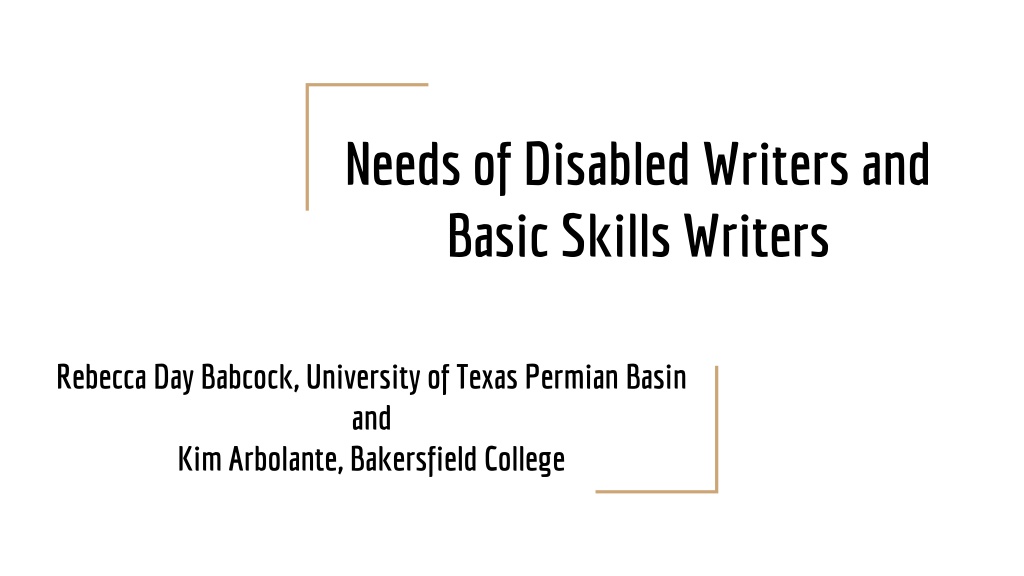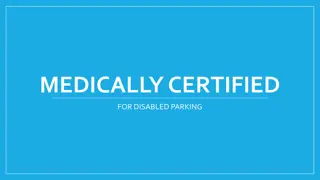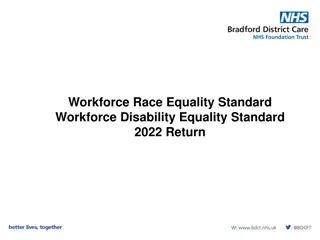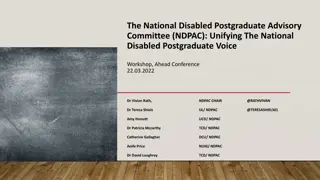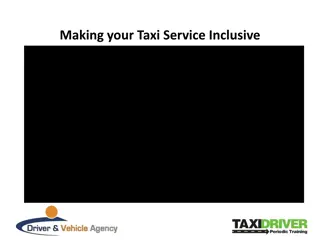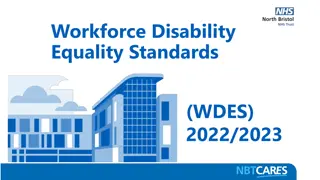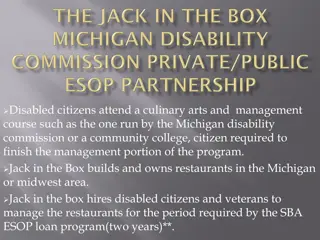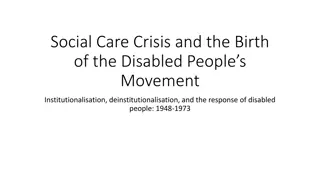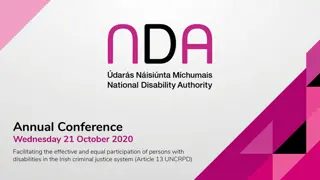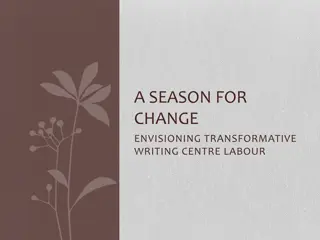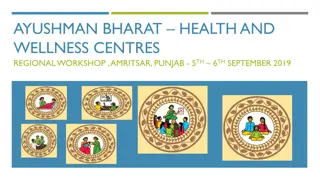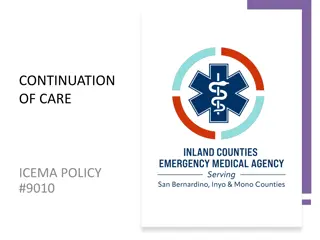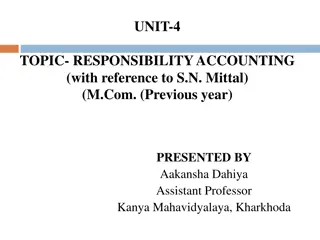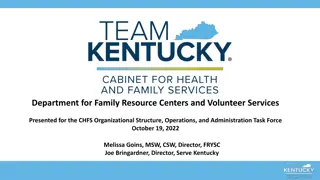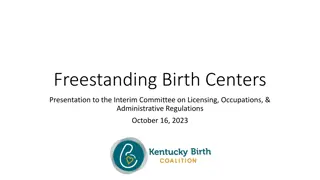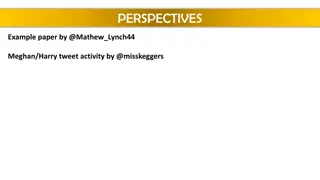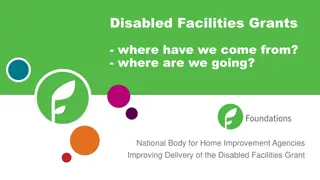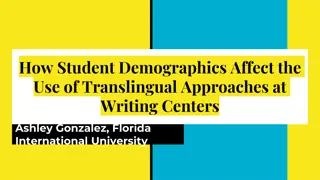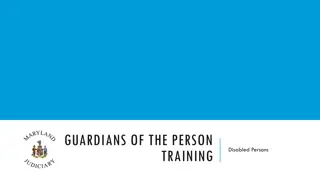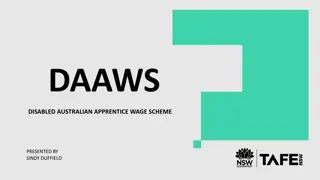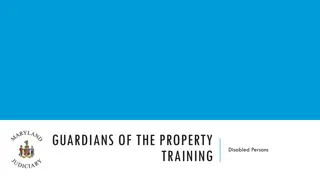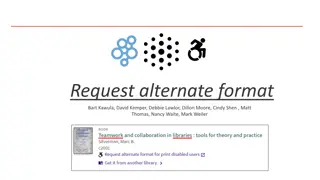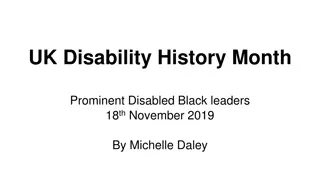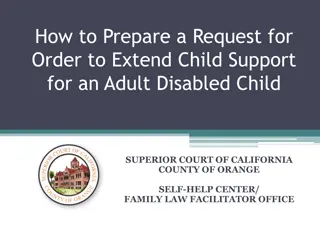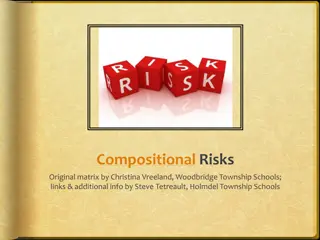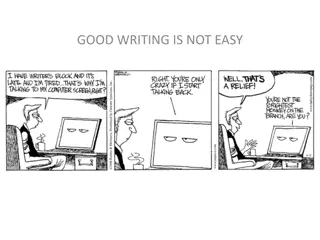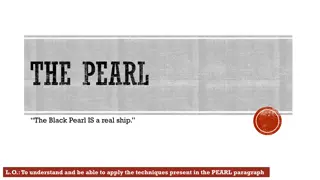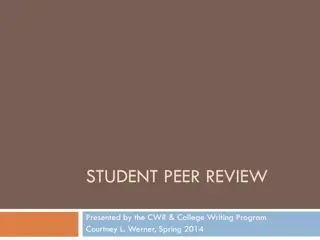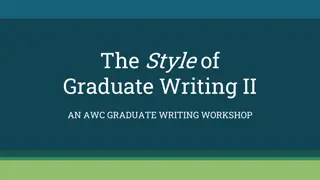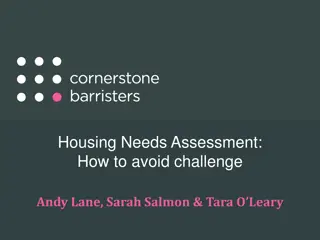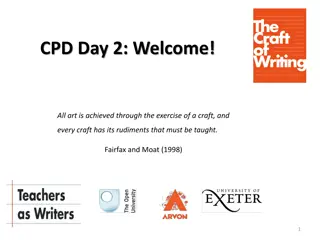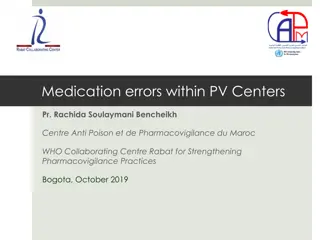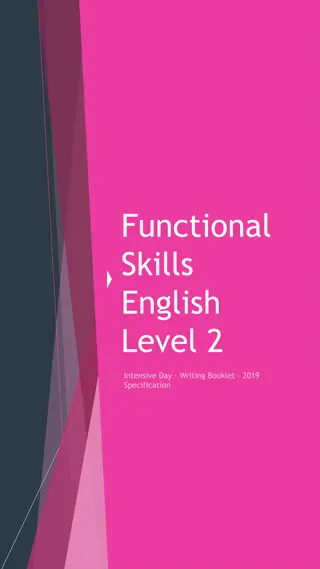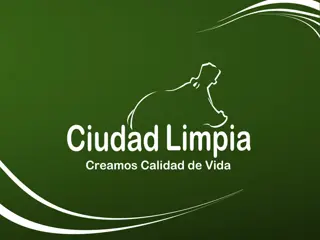Understanding the Needs of Disabled and Basic Skills Writers in Writing Centers
Explore the challenges and strategies related to disability, basic skills development, and access barriers faced by writers in educational institutions. Learn about evidence-based practices and developmental models to support diverse writers in improving their writing skills.
Download Presentation

Please find below an Image/Link to download the presentation.
The content on the website is provided AS IS for your information and personal use only. It may not be sold, licensed, or shared on other websites without obtaining consent from the author. Download presentation by click this link. If you encounter any issues during the download, it is possible that the publisher has removed the file from their server.
E N D
Presentation Transcript
Needs of Disabled Writers and Basic Skills Writers Rebecca Day Babcock, University of Texas Permian Basin and Kim Arbolante, Bakersfield College
Ice Breaker Questions In the chat window please answer the following two questions: In what type of institution is your Writing Center situated? (Two-year public, four-year private etc.)? What needs do your writers have regarding Disability Basic Skills or foundational skills development
Barriers Developmental Writing Disability Access barriers & SES (Fox; Lamos; Mutnick as cited in Tate et al., 2014) Medical Model vs Social Model Outlaw Tutoring (Babcock, 2008) Equity vs Equality Careful about falling back on grammar (Ritter, 2002) and discussing ideas/content with mainstream students and grammar with non-mainstream students (Babcock, 2012). Unpack the invisible knapsack of privilege (McIntosh, 2009) Lives on the Boundary (Rose, 1989) illustrates Lived experience Low SES Lacking in literacy Basic vs developmental Visible vs invisible (disclosure) Is there anything specific about you, your writing, or the way you learn best that could benefit us in this session today? (Daniels, Babcock, & Daniels 2015)
Learning Styles Developmental Writers Disability Skills, Concepts, and Habits of Mind (Bailey, Jaggars, & Jenkins, 2015) Some disabilities may effectively block certain learning channels; others may create a preference for one or the other. Flexibility is key. HoM, It s POSSIBLE @BC See Ryan, Miller, and Steinhart (2017) for particulars. Web tour Actionable VARK questionnaire
Evidence-Based Practices Disability Developmental Writing Rejecting the remedial brand (Lerner, 2007) Little research exists; what does exist does not mirror the actual disabilities students have. Many states shrinking remediation; some ending remediation (Fulks et. al., 2010). Equitable practice, but unintended SE consequences for some For example: WC Research US college students Learning Disability Deafness Less time for domestic and work obligations First gen. students struggling with student skills In considering models, keep equity framework in mind mental illness ADD/ADHD Mobility impairment Exhortation: Reach out to your mentor for advice on doing research & attend future webinar on research and publishing
Evidence-Based Developmental Models Developmental Writing Co-requisite models (MMAT 2019) Required/graded Faculty and writing center administrators should consider mandatory tutorials for students in developmental writing classes (Clark, 1985; Osman, 2007; Smith, 2010; Stonerock, 2005). Open entry/ungraded Optional support Writing centers can implement group tutoring with diverse groups of 2 5 basic writers (Beaumont, 1978; Nelson, 1991) Similar to an SI model PLTL (Peer-led team learning)
Building a Toolbox Disability Developmental Writing Think about your physical space Instruction, motivational and cognitive scaffolding (Mackiewicz and Thompson, 2014) Break down tasks into smaller steps Tools for student skills Enforce a time out if necessary Tools for writing independence Try using imperatives instead of interrogatives (Johnson, 1993) Scaffolding I do, we do, you do Scaffolding: Wood, Bruner, & Ross (1976) understand, interpret, apply (Tate et al., 2014) ZPD: Vygotsky (1978) Risk taking (Lamott, 2005)
Utilizing Team Approach and Technology Disability Developmental Writing Teamwork Technology Deafness LD Physical Disability Mobility Impairment (Babcock, 2015) Technology is a tool; tutors can be flexible with it Utilize Tutor Talk, staff meetings, reflective journaling Not every session is golden, but it is a learning opportunity Tutors: have a back-up plan/tool, a mentor/lead, build a hedge Deafness LD Visual Impairment Mental Illness
Study Examples for Discussion Disability Developmental Writing Realize Pragmatic Impairment or social (pragmatic) communication disorder is a real thing (Babcock, 2011, 2017) Illocutionary force indicating device (Thonus, 1999) Stick your nose where it should belong and be Intentionally intrusive (Fulks et al., 2010).
Questions & Answers Developmental Writing Disability
References Babcock, R. D. (2008). Outlaw tutoring: Editing and proofreading revisited. Journal of College Reading and Learning 37, 63-70. Babcock, R. D. (2011). When something is not quite right: Pragmatic impairment and compensation in the college writing tutorial. Writing Lab Newsletter, 35(5-6), 6-10. Babcock, R. D. (2015). Disabilities in the writing center. Praxis: A Writing Center Journal, 13(1). Babcock, R. D. (2017). Learning disability and pragmatics in the college writing tutorial. Southern Discourse in the Center, 21(2): 10-40. Bailey, T. R., Jaggars, S. S., & Jenkins, D. (2015). Redesigning America s community colleges. Harvard University Press. Daniels, S., Babcock, R. D., & Daniels, D. (2015) "Writing centers and disability: Enabling writers through an inclusive philosophy." Praxis: A Writing Center Journal 13.1 Fulks, J., Cordova, J., Mecom, A., Parsons, M., Pittaway, D. S., Smith, D., Elliot, M., Foster, Marne., Ikeda, V., Ortiz, R. & Ramirez, S. (2010). Practices that promote equity in basic skills in California Community Colleges. Academic Senate for California Community Colleges, http://www.asccc.org/sites/default/files/publications/promote_equity_basicskills-spr2010_0.pdf Johnson, JoAnn B. (1993). Re-evaluation of the question as a teaching tool. In T. Flynn & M. King (Eds.) Dynamics of the writing conference (pp. 34-40). NCTE. Lerner, N. (2007). Tutoring diverse populations. In Babcock, R.D. & Thonus, T. Researching the writing center: Towards an evidence-based practice. (pp. 142-147). Peter Lang.
References Mackiewicz, J. & Thompson, I. (2010). Instruction, cognitive scaffolding, and motivational scaffolding in writing center tutoring. Composition Studies, 42(1), 54-78. https://jomack.public.iastate.edu/Mackiewicz%20and%20Thompson%20%20Instruction,%20Cognitive%20Scaffolding,%2 0and%20Motivational%20Scaffolding%20in%20Writing%20Center%20Tutoring.pdf McIntosh, P. (2013). White privilege: unpacking the invisible knapsack. In Race, class, and gender in the United States: An integrated study. (9th ed.). Rothenberg, P.S., & Accomando, C. H. (Eds.), (pp. 188-192). Worth. MMAT Team. (2019, February). AB 705 implementation survey. The RP Group. https://rpgroup.org/Portals/0/Documents/Projects/MultipleMeasures/Publications/AB705_Implementation_Final.pdf?ver=20 19-04-22-173330-773 Mutnick, D. & Lamos, T. (2014). Basic writing pedagogy: Shifting academic margins in hard times. In Tate, G., Taggart, A. R., Schick, K., & Hessler, H. B. (Eds.). A guide to composition pedagogies. Oxford University Press. Ritter, J. J. (2002). Negotiating the center: An analysis of writing tutorial interactions between ESL learners and native-English speaking writing center tutors (Doctoral dissertation, Indiana University of Pennsylvania). ProQuest Dissertations & Theses Global, 3056649. Ryan, H. Miller, G., & Steinhart. S. (2017). Informed Practices in Babcock, Rebecca Day and Sharifa Daniels, eds. Writing Centers and disability. Fountainhead P. Rose, M. (1989) Lives on the boundary. Penguin Books.
References Wood, David, Jerome S Bruner, and Gail Ross. (1976). The role of tutoring in problem solving. Journal of Child Psychology and Child Psychiatry, 17 : 89-100. Available at: http://isites.harvard.edu/fs/docs/icb.topic862383.files/Wood1976.pdf Thonus, T. (1999). How to communicate politely and be a tutor, too: NS-NNS interaction and writing center practice. Text, 19(2), 253-279. Vygotsky, L. S. (1978). Mind in Society: The development of higher psychological processes. Harvard University Press.
